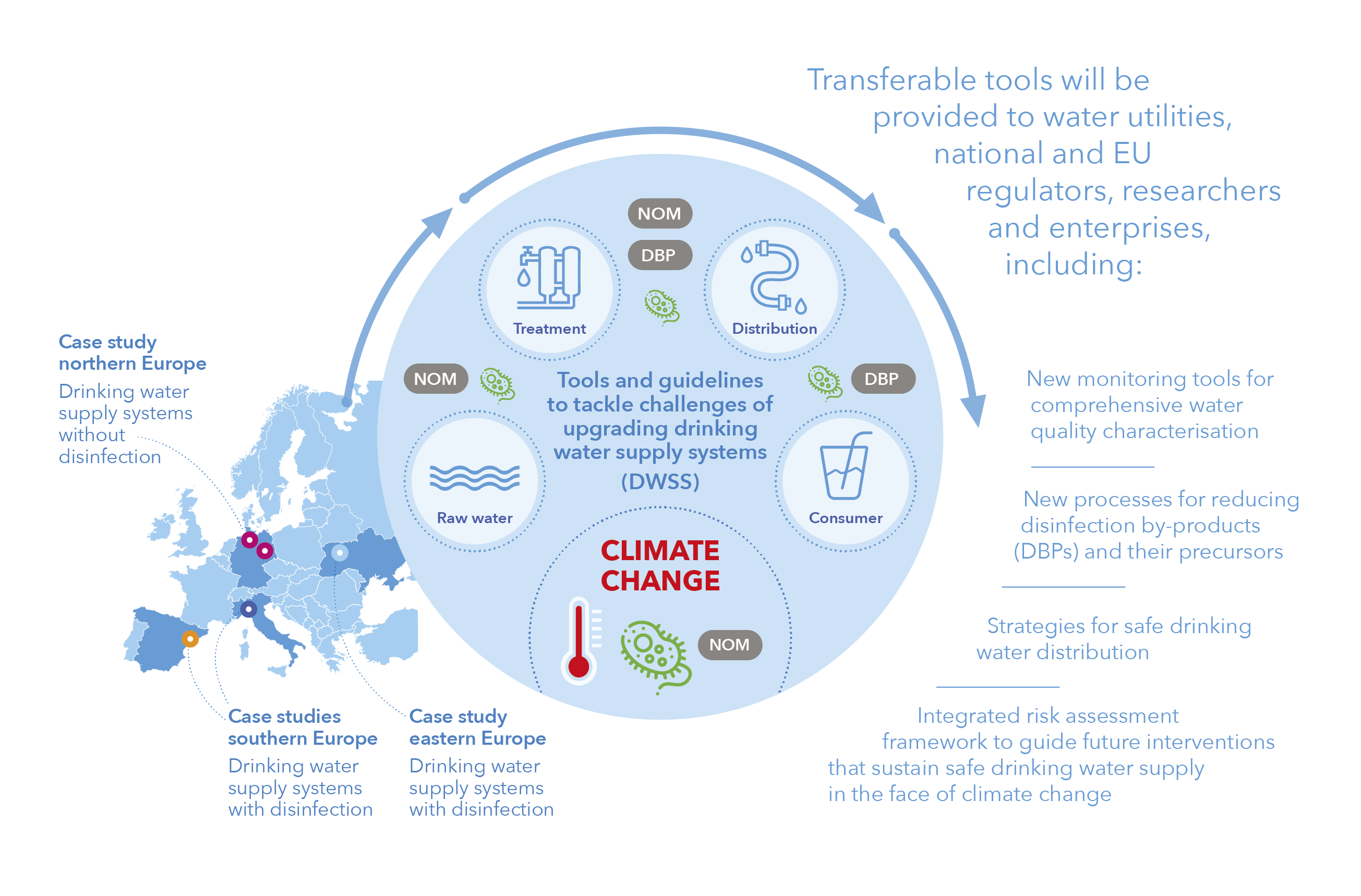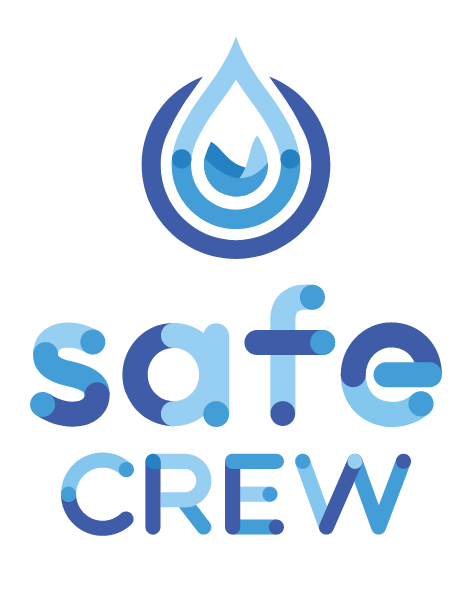Our vision
We want to ensure drinking water continues to meet high-quality standards for all EU consumers in the face of the effects of climate change by supporting water utilities in climate-resilient management procedures for safe disinfected and non-disinfected water supply systems.
SafeCREW at a glance
Provision of safe drinking water in sufficient quantity is essential for human health. Both surface water and groundwater are essential resources for drinking water supply throughout the European Union (EU). While water quantity receives much attention, the threats of climate change impacts on water quality for drinking water supply are currently inadequately considered.
Despite long-term experience with the reliable operation of disinfected and non-disinfected drinking water supply systems (DWSS), a number of challenges around microbial stability, the (future) need for disinfection and the consequences of disinfection by-product (DBPs) formation for human health remain open, directly deriving from climate change impacts such as increasing water temperature and higher levels of natural organic matter (NOM).
SafeCREW aims to support the novel EU Drinking Water Directive (DWD) by generating advanced knowledge and developing tools and guidelines for disinfected and non-disinfected drinking water supply systems.
Utilities need to address short-term demands for improved risk management arising from the current DWD as well as the long-term challenges of climate change impacts on water quality. Currently, non-disinfected and disinfected drinking water supply systems (DWSS) have very different concerns they must address to supply drinking water safe for human health. SafeCREW will address the needs of both types of DWSS, focusing on disinfection, its consequences, and the minimisation of disinfectant dosages and DBP formation, and moreover will address the potential need for disinfection in currently non-disinfected DWSS.

Approach
SafeCREW will use four case studies in northern Germany, Italy, Spain and the Ukraine to improve comprehensive water quality characterisation, to develop novel treatment solutions to actively respond to identified threats and to guide better management of water distribution networks to maintain high drinking water quality. Novel data sets on the occurrence and concentration of hitherto unknown DBPs will be created, and commercial actors stimulated to further develop tools for DBP quantification and mitigation. This will include all processes from source via treatment and up to distribution.
Transferable tools will be provided to end-users (water utilities, national/EU regulators, researchers, enterprises), including:
- reliable methods to evaluate microbial stability, characterise natural organic matter (NOM), detect DBPs and account for their human health toxicity
- protocols to select proper materials in contact with disinfected water
- monitoring and modelling tools, also exploiting machine learning, for real-time optimisation of DWSS management
- an integrated risk assessment framework to guide future interventions which ensure that both disinfected and non-disinfected DWSS can continue to provide safe drinking water in the face of climate change

SafeCREW will increase the preparedness of the EU water sector for challenges arising from climate change and will support the EU’s leading position in science-based policy making for drinking water consumer protection.
Get an overview about SafeCREW INNOVATIONS and Expected RESULTS
